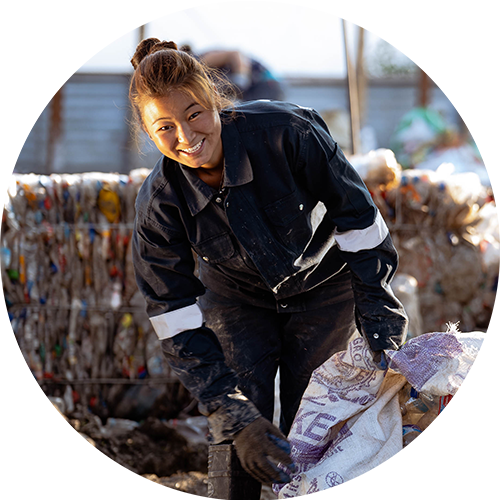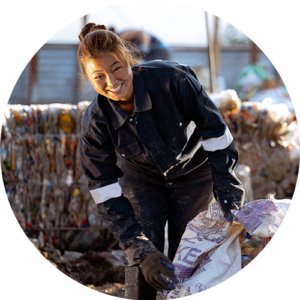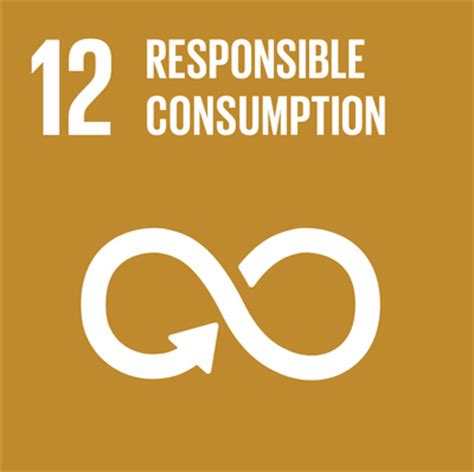>600 t
of plastic waste are produced every day in Nepal
6
of the 293 urban local bodies have constructed landfill sites; the rest is dumping in open areas
76%
of municipalities do not have policies/programs for managing plastic waste
Our Impact

Decreased environmental harm:
by pioneering LVP recycling in Nepal, proposing economically viable and innovative solutions

Ensuring safe working conditions:
by setting an example, advocating, and demanding implementation of high standards and safeguards

Fighting pollution at the source:
by running awareness campaigns in schools, public institutions and local communities

Advancing the local waste industry:
by providing research-based solutions and knowledge transfers to local stakeholders

Improved waste management:
by investing in waste collection infrastructure, financing urgently needed machinery and recycling centers

Increased public awareness and informed decision-making:
by publishing multiple reports and research on current the Nepali waste sector
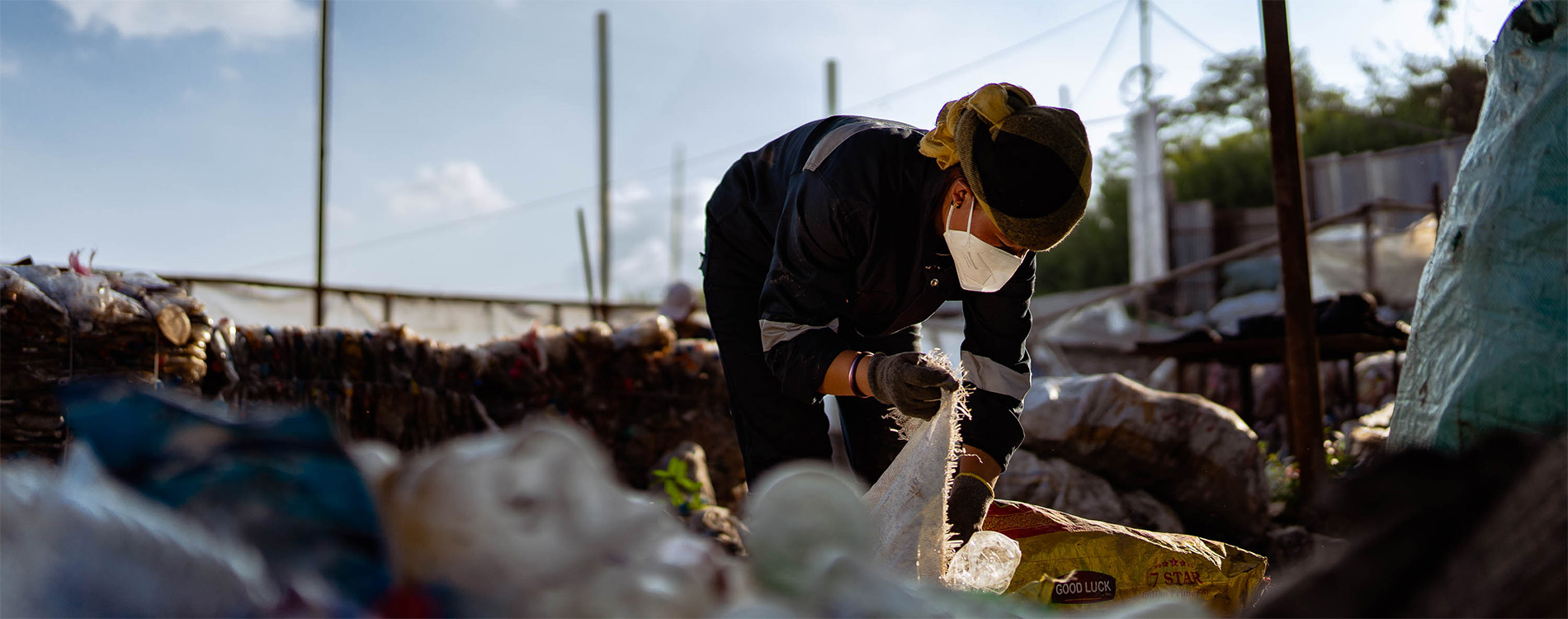
What Happened so Far?
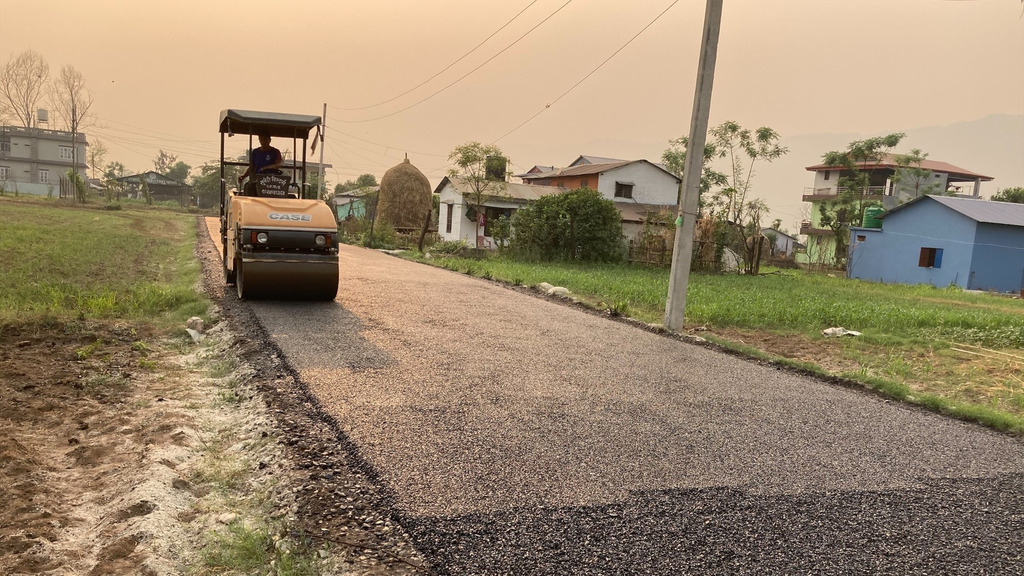
Initial proof of concept
We successfully demonstrated the first proof of concept for the ReValue business model. This entailed the collection, processing, and recycling of 9 tons of LVP waste, either in road construction or for use as Refuse-Derived Fuel (RDF). All activities were meticulously tracked, allowing us to claim and sell Plastic Credits through our partners in the Global North. Preliminary assessments confirm the economic feasibility of our concept when implemented at a larger scale.
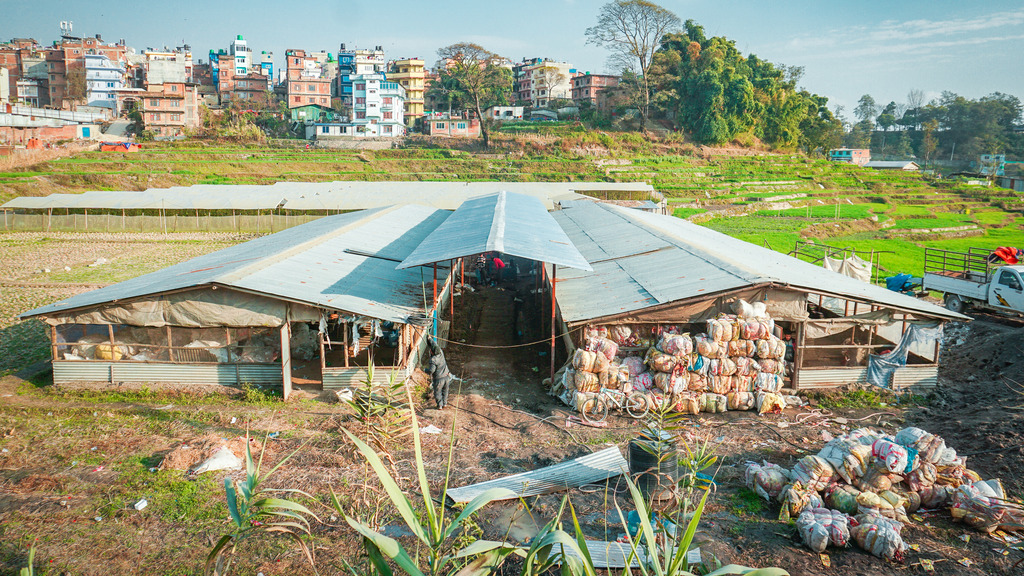
Development of 2 recycling centres
Over the course of 2022 and 2023, we provided comprehensive support to two local partners in the development of two recycling center. This support included different processing machines, supplementary equipment, financial aid, and expert advice for the construction and management of their collection and recycling centres.
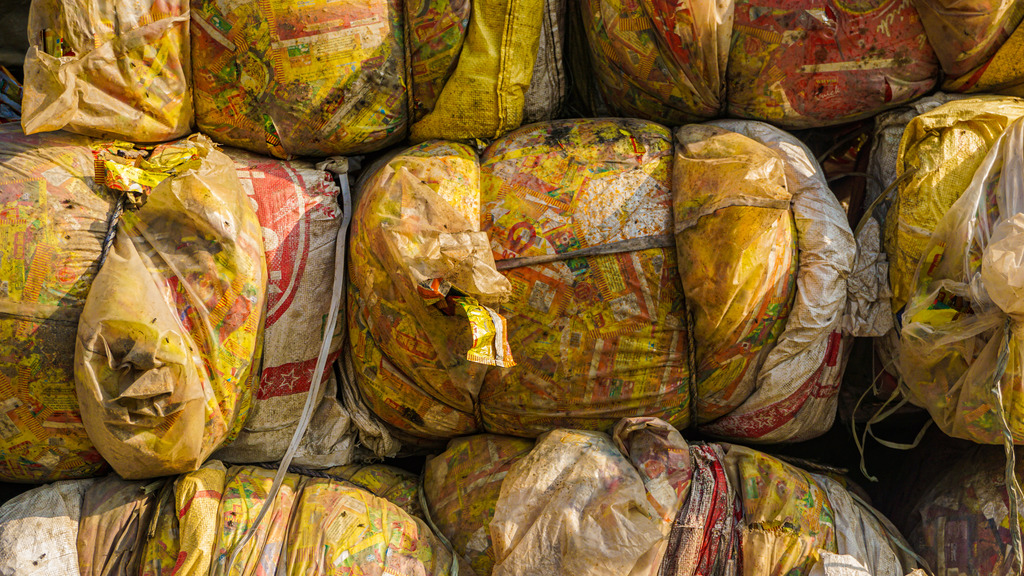
Nepal's first Plastic Credits
In collaboration with our local partner we have become the first entity to offer Plastic Credits in Nepal. We are presenting these credits to clients in the Global North through our partner WasteReduction.
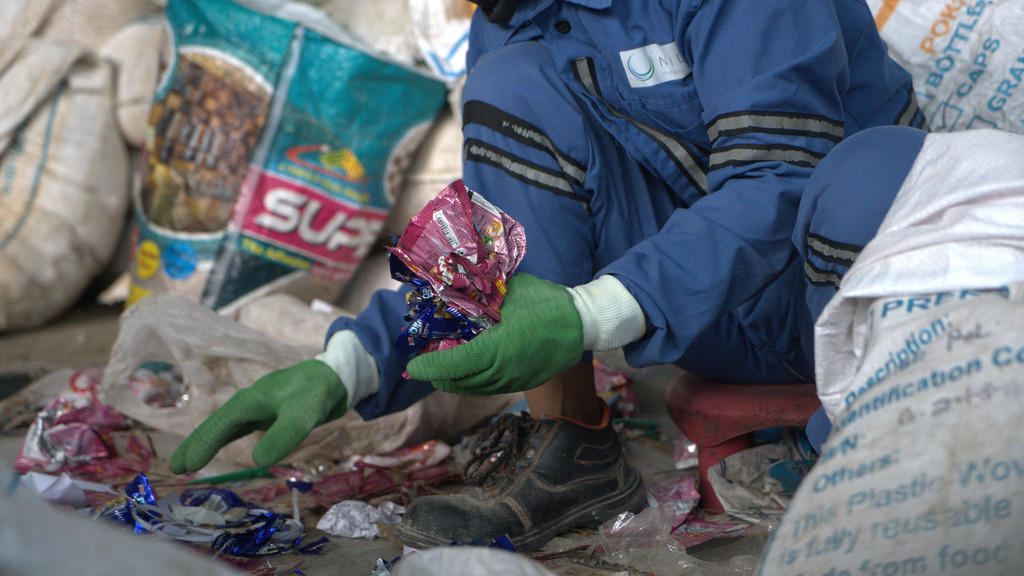
Waste management excellence
With the goal of obtaining certification under the Verra Plastic Waste Reduction Standard, we have established the highest standards in environmental protection, occupational health and safety, social safeguards, stakeholder engagement, and quality management within our waste management operations.
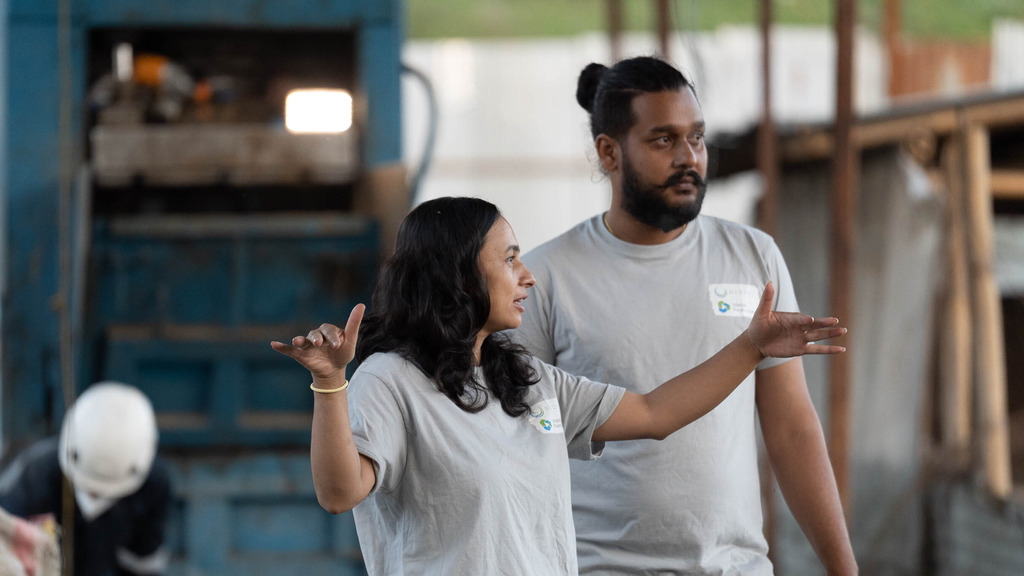
Research for impact
Sponsored by the Export Initiative Environmental Protection (EXI) of the Federal Ministry for the Environment, Nature Conservation, Nuclear Safety and Consumer Protection, we have conducted extensive research on plastic waste management in Nepal; assessing the viability of Plastic Roads in Nepal; and exploring Plastic Credits as catalyst for environmental entrepreneurship in plastic waste management in the Global South.

